Multiple Intelligences, Personalised Learning & School Development
Professional consultancy for this project is provided by our international partners
MAW Education http://www.discover-multiple-intelligences.com/
MAW Education Product & Services(Download) http://www.theachieversprogramme.com/Downloads.aspx
A number of visits by international experts on
Multiple Intelligences and Learning Styles are a regular feature of this project.

Linguistic / Logical, mathematical, scientific / Visual, spatial / Bodily, kinesthetic / Musical / Naturalistic / Interpersonal / Intrapersonal / Spiritual, existential Intelligences
Brain research shows that we use different parts of the brain for different purposes and we have a multiple number of intelligences. Whilst each of us has all of these intelligences, some will be stronger than others, and this varies from person to person. Knowing this, teachers are changing their teaching methods so that all children succeed, not just those who reach high marks in the traditional IQ test which is based on only two of these intelligences. Many teachers need help to make this change in their teaching methods and The Achievers? Programme is providing workshops through MAW Education to explain the theory of MI and provide practical advice for classroom teachers and for school leaders. Additional consultancy visits support schools further, enabling them to reach current international standards of teaching and learning.
Whole class teaching
Differentiated activities
Personalised learning
Teachers plan lessons, knowing that students have different learning styles.
They teach through their Multiple Intelligences.
Professional Development
The Achievers’ Programme with MAW Education
have trained and advised over 1,600 teachers across India.
Assam, Chandigarh, Delhi, Haryana, Karnataka, Madhya Pradesh, Maharashtra, Punjab, Rajasthan, Uttarakhand, Uttar Pradesh.
Teachers ask:
“How can we teach our large classes using methods that meet current international expectations?”
“How can we cover the vast curriculum using these methods?”
“How can we reach the high standards expected, if there is so much practical work?”
We all learn in different ways.
With whole-class teaching only some students succeed – those who learn linguistically. Combine whole class teaching with group and individually planned activities and you will uncover the curriculum in a way that enables all students to succeed.
We help schools to integrate multiple intelligences theory into their curriculum by training staff and guiding teachers' lesson planning on the basis of MI theory.
Students are then assessed using MI methods.
Fees
Module 1 - Level 1
Module 2 - Level 2
Consultancy - Levels 3 and 4
Module 1 - Two Day Workshop
Time
Day One - 5 hours - 8.30 a.m. - 2.00 p.m.
Day Two - 5 hours - 8.30 a.m. - 2.00 p.m.
Content of workshops
Brief history of MI theory
Changing educational expectations in India
A guide to identifying different intelligences
What use are the different intelligences in finding the right job or career?
Recognising your own and your students' multiple Intelligences
Planning a Topic and Topic Weeks with MI activities
Planning a lesson, linking MI activities to teaching about concepts, knowledge, skills and attitudes.
Cross-curricular links and multiple intelligences
Research evidence showing six schools' success in using MI theory
Using MI theory in classroom organisation and discipline
Using your own examination syllabus to plan MI activities
Different Assessment activties using MI theory - e.g. rubrics, process folios, observations.
After six months - follow-up visit
Module 2 - One day classroom observations and one day workshop
Time
Day One - 8.30 a.m. - 2.p.m.
6 whole lesson or 4 whole lessons and 4 half lessons (maximum of 8 observations) with brief summary feedback to management.
8.30 - 9.10 Observation Year a Subject g
9.10 - 9.50 Observation Year b Subject h
9.50 - 10.30 Observation Year c Subject i
10.30 - 11.00 Break
11.00 - 11.30 Observation Year d Subject j
11.30 - 12.00 Observation Year e Subject k
12.00 - 12.30 Observation Year f Subject l
12.30 - 1.30 Consultant review time
1.30 - 2.00 Brief summary feedback of main points to Co-ordinator or Principal
Day Two - Feedback and Workshop - 8.30 a.m. - 2 p.m.
8.30 - 10.30 - Individual feedbacks to the teachers observed on day one.
11.00 - 2.00 - Workshop for teachers and co-ordinators
Content of workshop
MI development and your school
Differentiation and personalised learning
Consultancy for School Development
Schools are invited to list topics of interest to them and submit their choices to The Achievers' Programme. TAP and MAW Education then draws up a costed and timed, school-specific programme, to be agreed with the school at least a month before the consultancy visit.
When dates chosen by the school cause additional travelling expenditure, extra costs may be incurred.
Choice of Consultancy Topics (other topics by arrangement before the visit only)
Senior Leadership and Management
Setting up the school's performance management system
Compiling a data base of staff expertise (including qualifications and courses attended)
Compiling a 'needs analysis' of the school
Making the most of a partnership with parents
Designing a parent report form
Apprenticeship programmes and the business community
Planning resources and equipment for different year groups
Middle Management
Faculty inventory
Middle management and classroom observations
The role of the special needs co-ordinator
The role of the learning mentor
Induction of new teachers
Using assessment data for different purposes
Using computers as a resource tool - e.g. lesson plans and feedback / subject specific vocabulary bank
Teaching through topics and projects
Designing a faculty lesson plan
English as a first / second / third language
Citizenship education
The role of classroom teaching assistants
Playground games and activities
Class Teachers
Individual interviews with teachers on planning a specific lesson, followed by an observation of that lesson and feedback.
A change of direction : from teaching to learning
Observation as a form of assessment
Differentiation and personalised learning and the knowledge of children's different intelligences
The importance of play, exploration and investigative work in the learning process
Using the outdoor classroom to best effect
The inspirational classroom - the use of display in teaching and learning
Teaching students to work in groups and teams / negotiating skills / responsibilities
Homework / prep.
Respect, discipline, rewards and sanctions
Making the most of school visits
Students
Setting up a school council
Examination preparation - managing stress
Working in groups
Your multiple intelligences
A wrritten report after module 2 or after a consultancy visit demands additional consultancy time.
An extra costs is incurred if this is needed, and should be requested as part of the initial submission.
|
Linguistic Intelligence
|
DSB International, Mumbai
  |
Daly College, Indore
 |
| Logical / Mathematical / Scientific Intelligence |
|
RiverDale, Pune - Y12 Economics
 |
DPS, Jalandhar - Mathematical
 |
DPS, Jalandhar - Science - Living and non-living things
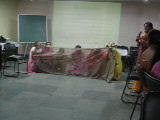 |
|
| Visual / Spatial Intelligence |
|
DPS, Jalandah
 |
St. George's College, Mussoorie
 |
| Bodily / Kinesthetic Intelligence |
|
Kothari International, Noida
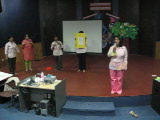 |
RiverDale, Pune
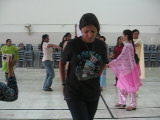 |
Bal Baharti, Delhi
 |
|
| Musical Intelligence |
|
Mody, Sikar
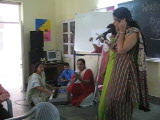 |
Kothari International, Noida
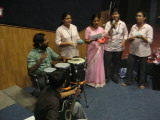 |
St. George's College, Mussoorie
 |
DPS, Jallandhar - Singing
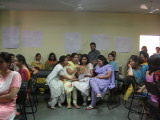
|
| Naturalistic Intelligence |
|
DPS, Jalandhar
  |
|
| Interpersonal Intelligence |
|
Partner Work ? Bangalore International
 |
Group Work - RiverDale, Pune
 |
| Intrapersonal Intelligence |
|
RiverDale, Pune
 |
Adita Birla Public School
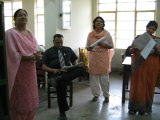 |
| Spiritual / Existential Intelligence |
|
Mody School, Sikar
 |
Adita Birla Public School, Renusaga
 |
Daly College, Indore
  |
|
| |
All enquires to: The Achievers' Programme contact@tapachieves.in